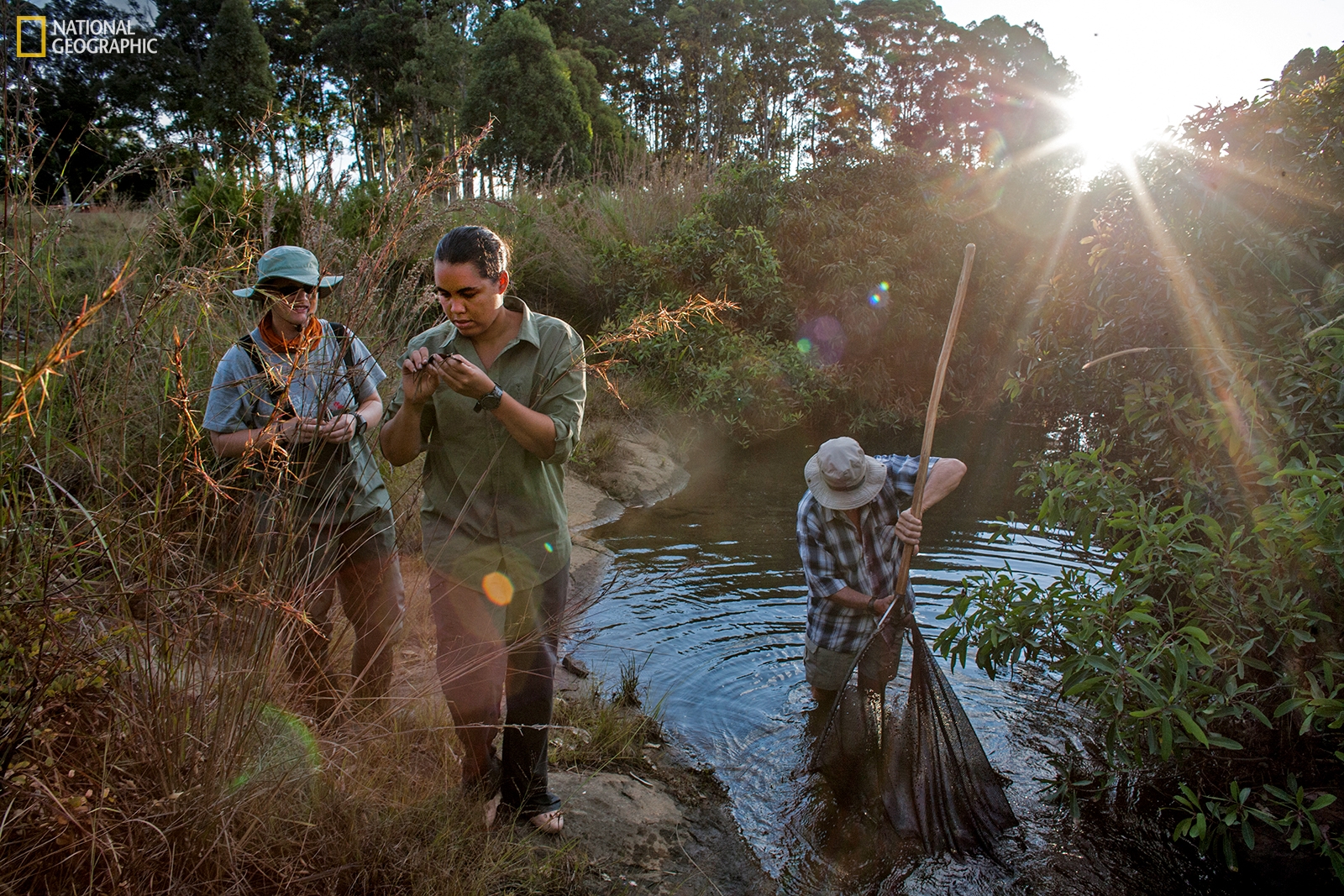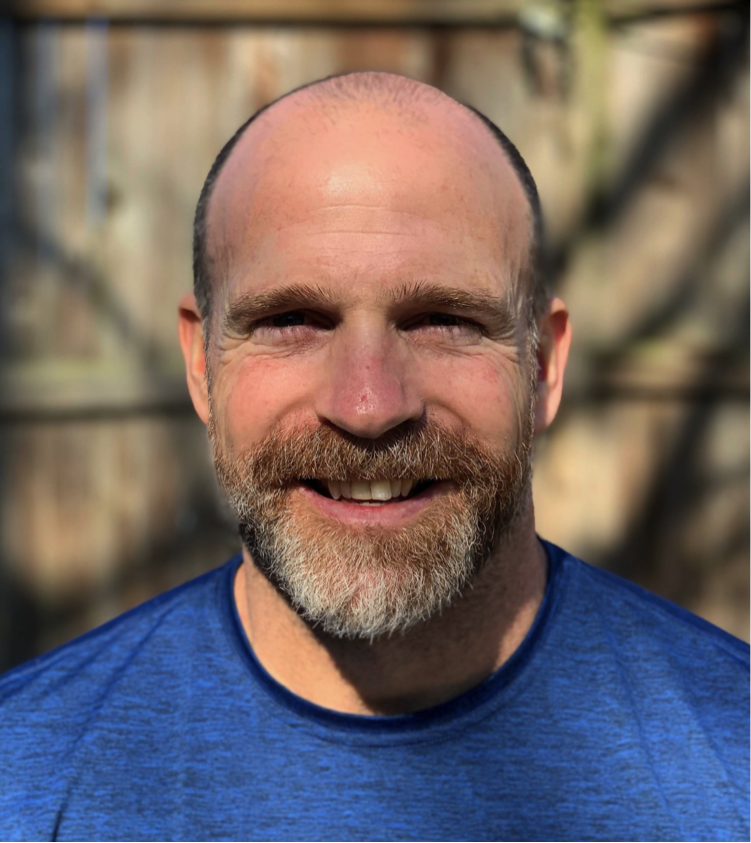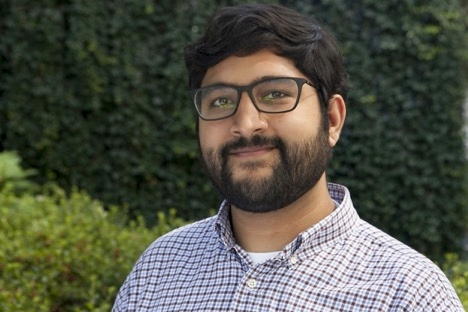XMNR Alumni Connect at the National Geographic Society

By Alec Masella
Two Virginia Tech Executive Master of Natural Resources (XMNR) alumni, Arslan Ahmad and Mike Beckner, met for the first time in the elevator of their shared workplace, the National Geographic Society (NGS). Both men were wearing jackets with the Center for Leadership in Global Sustainability (CLiGS) logo, which was enough to spark a conversation. “We talked about the program,” Mike recalls, “and I remember thinking it was nice to see someone else from my area of study at Virginia Tech.”
As employees of NGS, Arslan and Mike work with grant and field initiatives to not only evaluate and implement conservation projects, but also to inform the public of these sustainability accomplishments. Leading by example is a core NGS value, and both Arslan and Mike work every day to develop solutions to environmental issues on a global scale.

As the senior program manager for the Okavango Wilderness Project, Mike’s job focuses on the development of a network of protected areas in Angola’s central highlands, the source of the water that flows into Botswana’s Okavango Delta. Since launching in 2015, this project’s mission has specifically been to preserve the freshwater sources and biodiversity, and develop the capacity of the communities in this region.
“I coordinate with our employees in Botswana, South Africa, and Angola from our office in D.C.,” he explains. “Our hoped-for end result will be a series of protected areas that cover more than 30 million acres across Angola. Most of my effort is put toward making sure that this plan is carried out deliberately and thoughtfully, so that people and wildlife across the region will be able to benefit from it for years to come.”
The Okavango Wilderness Project is one of several major projects taking place within the organization’s Last Wild Places initiative—its goal is to support the protection of thirty percent of Earth by 2030. But all projects, no matter the scale, start with a proposal. Arslan works in this facet of the organization to manage potential projects addressing global changes and their effects on humanity and nature.
“I work in the grants department,” he explains, “and my favorite part is how globally focused my position is. While a lot of my job revolves around grant review and administration, I also get to work with the grantees for media coverage. We like to elevate people who are involved with work in nature. I look critically at these candidates and the work they do to see if their work can be further promoted. This sort of promotion is mutually beneficial because the grantees enjoy discussing their work, and we at the Society get to showcase these new initiatives to a larger audience to raise awareness.
Both Arslan and Mike attribute their “bigger-picture” mindsets to the XMNR education experience. The competencies they gained in the program have proven to be of use every day in their work at the NGS. “When I decided to pursue the master’s degree, I was interested in a field that is globally relevant with an emphasis on leadership,” Mike explains. “Throughout my XMNR experience, I learned how to step back and see things at a broad level—only then can problems be identified and broken down to achieve a long-term goal.”

Arslan agrees. “I wanted a comprehensive program,” he says. “What was most valuable for me was the confidence I gained in discussing such important and complex issues. I now have the credentials to speak up and make an impact.”
The two alumni have found that global sustainability affects even the most remote of regions, which is why NGS is essential in helping spread awareness to the general public. Garnering interest is one of the most vital activities of the organization, because doing so sheds light on the degree to which Earth’s systems are interconnected.
“We recently awarded a grant to a young Bulgarian scientist from a rural village,” Arslan explains. “She is a global ecologist and Ph.D. student studying how climate change is affecting the Arctic. As it turns out, northern Canada and Greenland are rapidly greening, now that plants can bear the increasing temperatures. Her team studies this unique phenomenon, which is critical in understanding how climate change is causing noticeable change to our planet.”
Whether it’s the rising temperature worldwide or plastic pollution in the ocean, there is no doubt that human activity damages ecosystems worldwide. But people also have the power to address these issues and build a more sustainable future for all. The Center for Leadership in Global Sustainability is proud to have alumni who are determined to face these problems and use their skills and capabilities for the greater good. With NGS, Mike and Arslan are at the forefront of empowering the next generation to maintain a healthy and balanced world.


